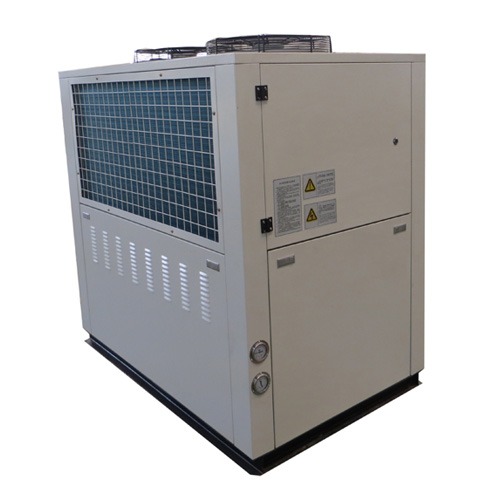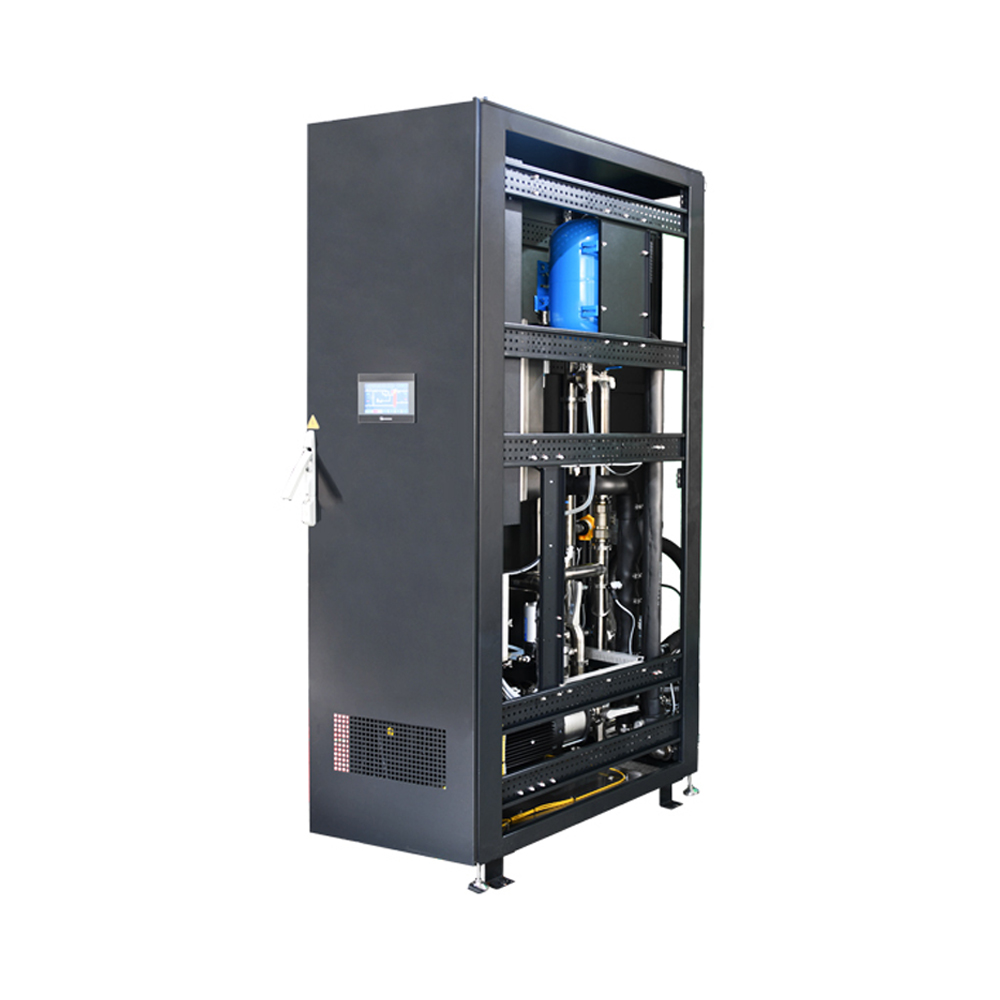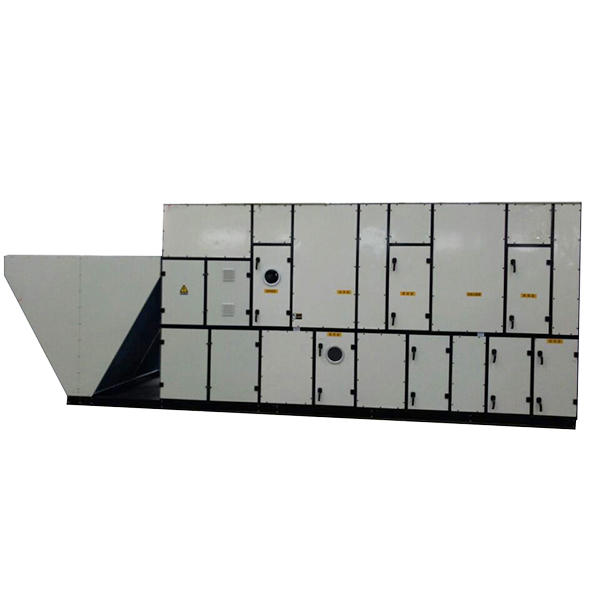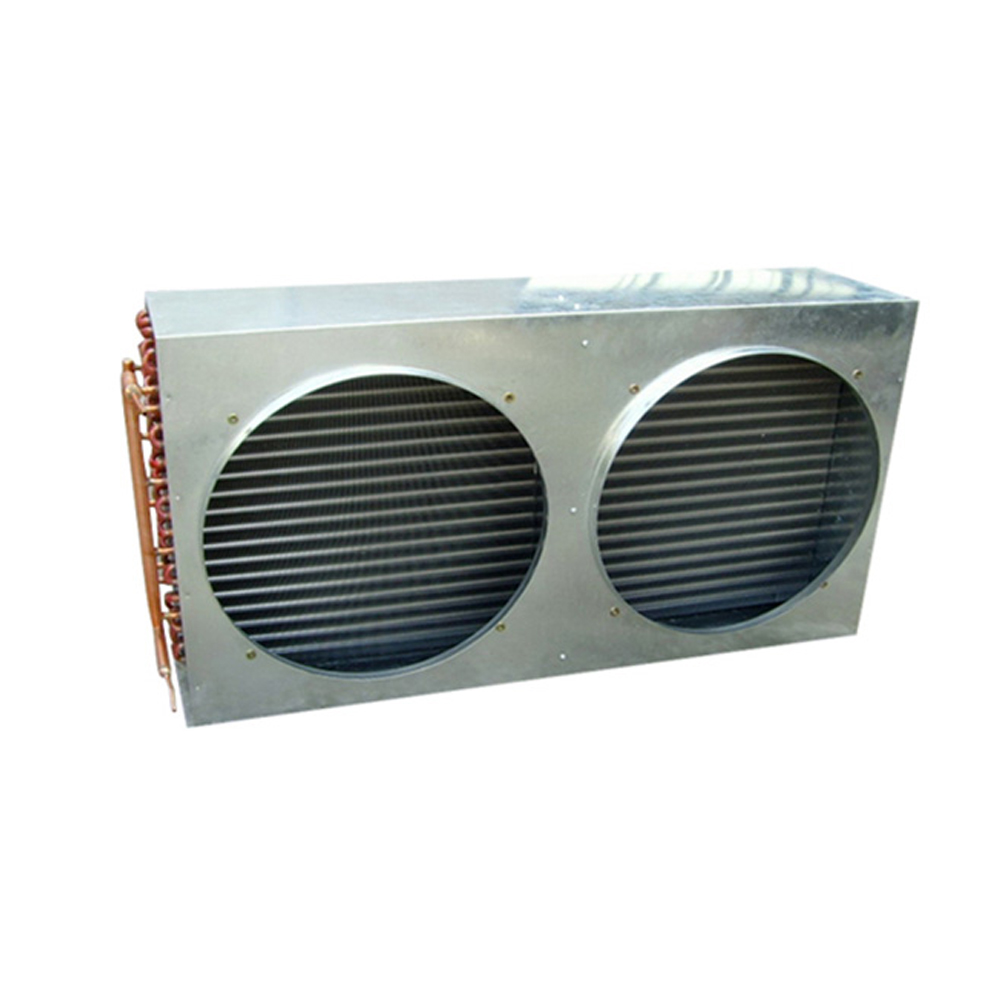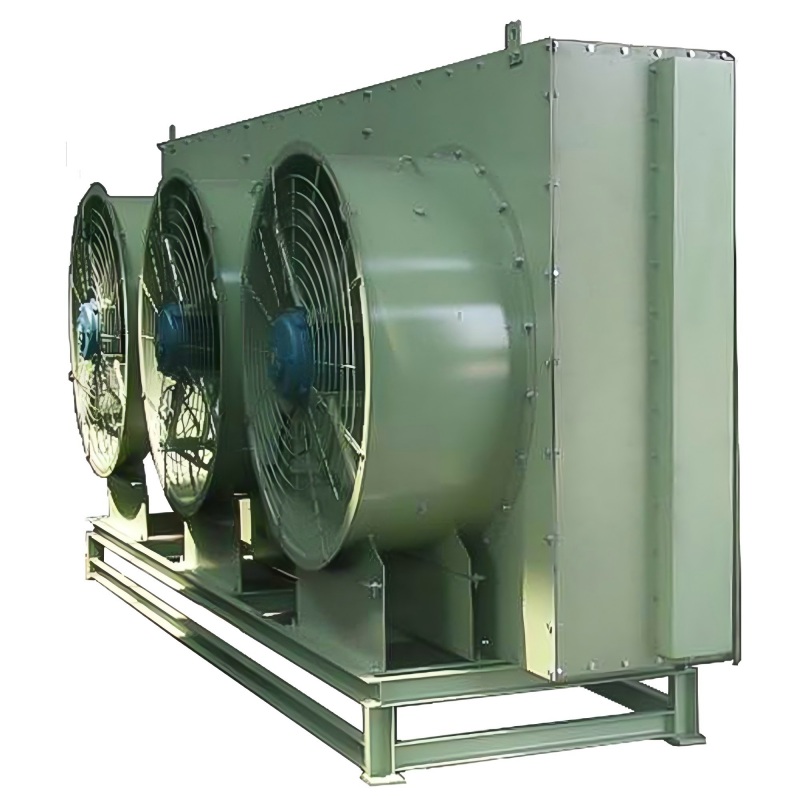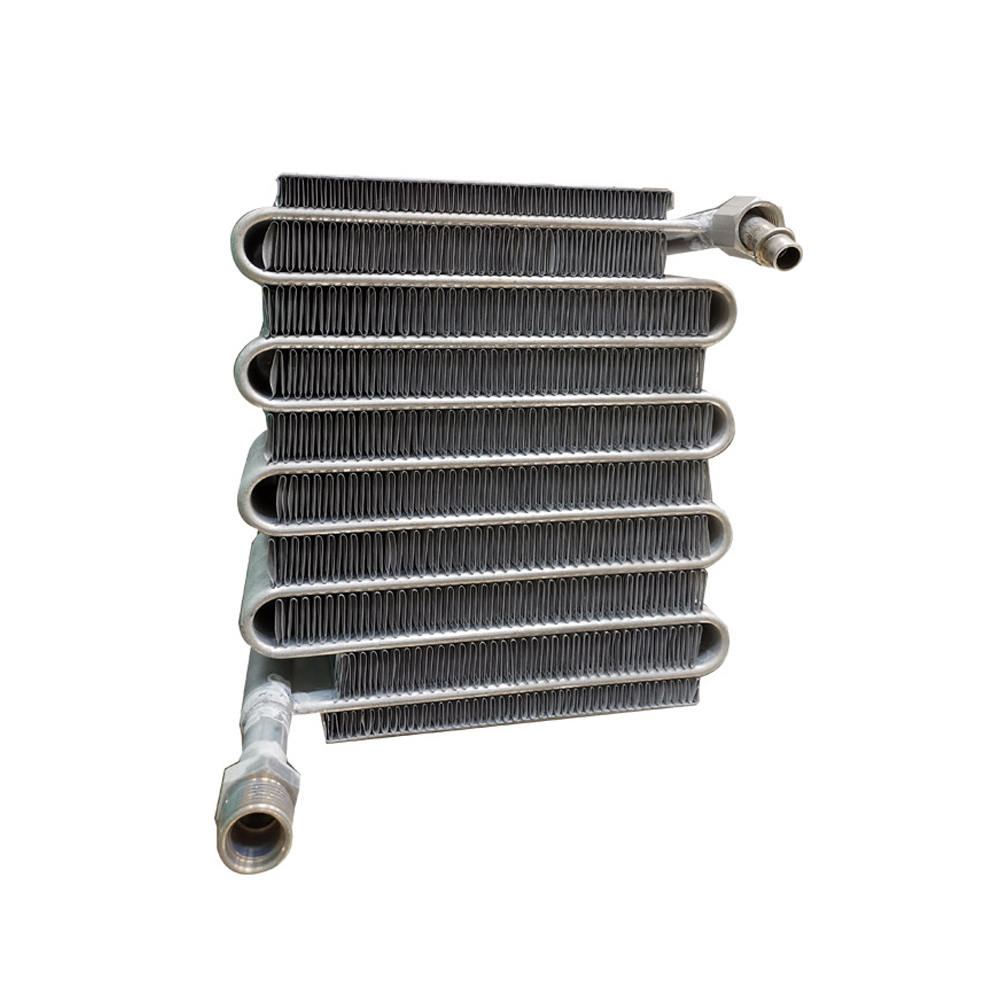การทำความเข้าใจและการเลือกเครื่องแลกเปลี่ยนความร้อนแบบ Air Cooler ที่เหมาะสม
คู่มือที่ครอบคลุมนี้จะสำรวจความซับซ้อนของ เครื่องแลกเปลี่ยนความร้อนแบบระบายความร้อนด้วยอากาศช่วยให้คุณเข้าใจฟังก์ชัน ประเภท และเกณฑ์การคัดเลือก เราเจาะลึกปัจจัยที่มีอิทธิพลต่อประสิทธิภาพ การบำรุงรักษา และผลกระทบโดยรวมต่อประสิทธิภาพการทำความเย็น เรียนรู้วิธีเลือกสิ่งที่ดีที่สุด เครื่องแลกเปลี่ยนความร้อนอากาศเย็น สำหรับความต้องการและการใช้งานเฉพาะของคุณ ตั้งแต่การตั้งค่าทางอุตสาหกรรมไปจนถึงการดำเนินงานขนาดเล็ก นอกจากนี้ เรายังครอบคลุมถึงข้อควรพิจารณาที่สำคัญ เช่น การเลือกวัสดุ การออกแบบครีบ และการปรับการไหลของอากาศให้เหมาะสม
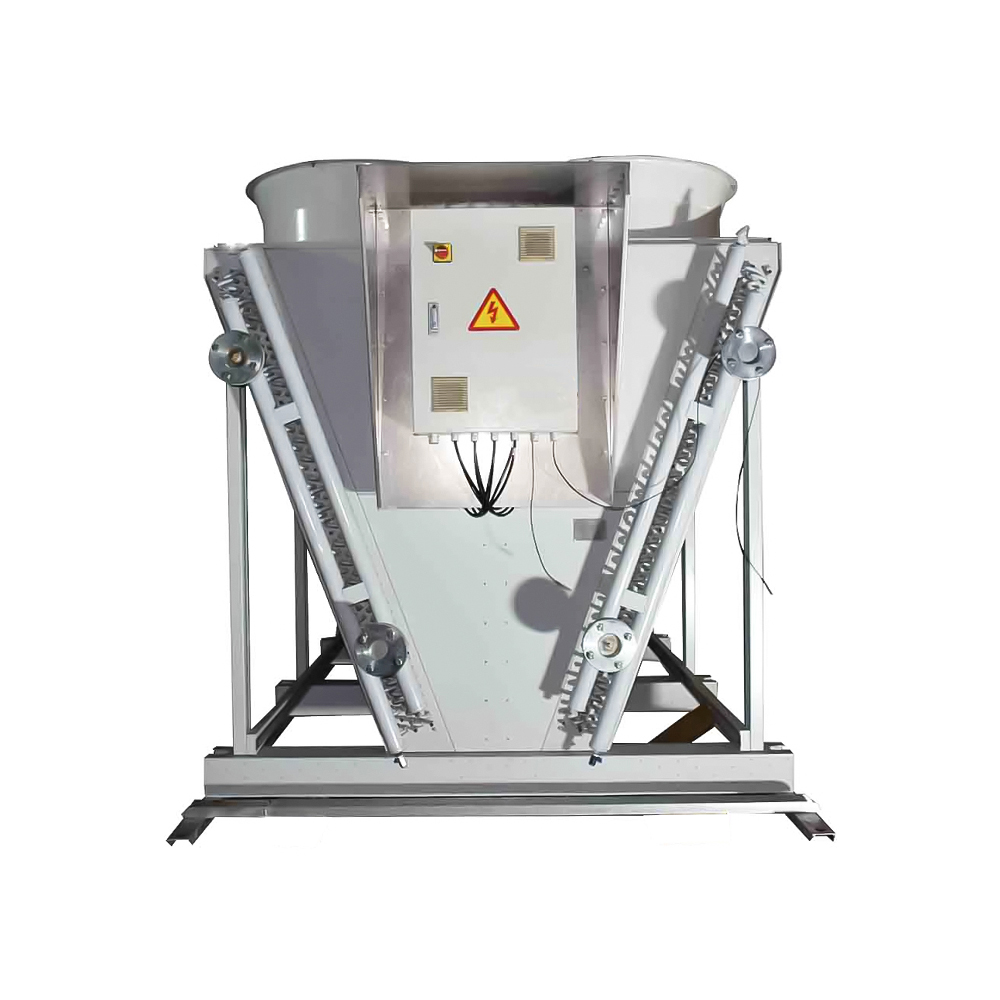
เครื่องแลกเปลี่ยนความร้อนแบบ Air Cooler คืออะไร?
อ เครื่องแลกเปลี่ยนความร้อนอากาศเย็น เป็นส่วนประกอบสำคัญในระบบทำความเย็นในอุตสาหกรรมและเชิงพาณิชย์จำนวนมาก หน้าที่หลักคือการถ่ายเทความร้อนจากของเหลว (เช่น น้ำ น้ำมัน หรือสารทำความเย็น) ไปยังอากาศโดยรอบ กระบวนการถ่ายเทความร้อนนี้จะทำให้ของเหลวเย็นลง ซึ่งมักจะเป็นส่วนหนึ่งของหอทำความเย็นขนาดใหญ่หรือหน่วยทำความเย็นด้วยอากาศ ประสิทธิภาพของการถ่ายเทความร้อนนี้ส่งผลโดยตรงต่อประสิทธิภาพโดยรวมและการใช้พลังงานของระบบทำความเย็น การออกแบบที่แตกต่างกันจะปรับให้เหมาะสมกับปัจจัยต่างๆ เช่น อัตราการถ่ายเทความร้อน ความดันตกคร่อม และพื้นที่ผิว การทำความเข้าใจปัจจัยเหล่านี้ถือเป็นสิ่งสำคัญในการเลือกสิ่งที่ถูกต้อง เครื่องแลกเปลี่ยนความร้อนอากาศเย็น สำหรับการสมัครที่กำหนด
ประเภทของเครื่องแลกเปลี่ยนความร้อนแบบแอร์คูลเลอร์
เครื่องแลกเปลี่ยนความร้อนแบบครีบเพลท
แผ่นแลกเปลี่ยนความร้อนแบบครีบ มักใช้เนื่องจากมีอัตราส่วนพื้นที่ผิวต่อปริมาตรสูง ส่งผลให้มีการถ่ายเทความร้อนได้อย่างมีประสิทธิภาพ ประกอบด้วยแผ่นบางๆ ที่มีครีบติดอยู่ ทำให้เกิดช่องมากมายสำหรับการไหลของอากาศและการไหลของของไหล การออกแบบช่วยให้มีการก่อสร้างที่กะทัดรัดและเหมาะสำหรับการใช้งานที่หลากหลาย การเลือกใช้วัสดุ เช่น อะลูมิเนียมหรือทองแดง มีอิทธิพลต่อคุณลักษณะการถ่ายเทความร้อนและความต้านทานการกัดกร่อน Shanghai SHENGLIN M&E Technology Co.,Ltd มีครีบเพลทให้เลือกหลากหลาย เครื่องแลกเปลี่ยนความร้อนแบบระบายความร้อนด้วยอากาศ.
เครื่องแลกเปลี่ยนความร้อนแบบท่อและครีบ
เครื่องแลกเปลี่ยนความร้อนแบบท่อและครีบ ใช้ท่อที่ล้อมรอบด้วยครีบเพื่อเพิ่มพื้นที่ผิวในการถ่ายเทความร้อนให้สูงสุด ของเหลวไหลผ่านท่อในขณะที่อากาศไหลผ่านครีบ เครื่องแลกเปลี่ยนเหล่านี้มักมีความทนทานและเหมาะสำหรับการใช้งานที่มีแรงดันสูง การเลือกใช้วัสดุท่อ (เช่น ทองแดง สแตนเลส) และการออกแบบครีบส่งผลต่ออัตราการถ่ายเทความร้อนและแรงดันตกคร่อม เหมาะอย่างยิ่งสำหรับการใช้งานทำความเย็นในอุตสาหกรรมขนาดใหญ่
เครื่องแลกเปลี่ยนความร้อนแบบเชลล์และท่อ
เครื่องแลกเปลี่ยนความร้อนแบบเปลือกและแบบท่อ มีลักษณะเป็นเปลือกหุ้มห่อหุ้มท่อไว้ ของเหลวไหลผ่านท่อ ในขณะที่ของเหลวอีกชนิดหนึ่งไหลผ่านท่อภายในเปลือก เครื่องแลกเปลี่ยนเหล่านี้มีความสามารถในการจัดการแรงดันที่ดีและมักใช้ในการใช้งานที่อุณหภูมิสูง อย่างไรก็ตาม โดยทั่วไปแล้วจะมีขนาดใหญ่และซับซ้อนกว่าประเภทอื่นๆ
ปัจจัยที่ต้องพิจารณาเมื่อเลือกเครื่องแลกเปลี่ยนความร้อนแบบระบายความร้อนด้วยอากาศ
การเลือกสิ่งที่ถูกต้อง เครื่องแลกเปลี่ยนความร้อนอากาศเย็น ต้องพิจารณาอย่างรอบคอบถึงปัจจัยหลายประการ:
| ปัจจัย | ข้อควรพิจารณา |
| หน้าที่ความร้อน | ปริมาณความร้อนที่จะถ่ายเท สิ่งนี้จะกำหนดขนาดและประเภทของตัวแลกเปลี่ยนที่จำเป็น |
| คุณสมบัติของของไหล | ความหนืด การนำความร้อน และอัตราการไหลของของเหลวมีอิทธิพลต่อประสิทธิภาพการถ่ายเทความร้อนและแรงดันตกคร่อม |
| แรงดันตก | ควรลดการสูญเสียแรงดันทั่วทั้งตัวแลกเปลี่ยนให้เหลือน้อยที่สุดเพื่อปรับปรุงประสิทธิภาพและลดต้นทุนการสูบน้ำ |
| การเลือกใช้วัสดุ | ความต้านทานการกัดกร่อน ขีดจำกัดอุณหภูมิ และราคาเป็นปัจจัยสำคัญในการเลือกใช้วัสดุ |
| ข้อกำหนดการบำรุงรักษา | พิจารณาความง่ายในการทำความสะอาดและการเข้าถึงเพื่อการบำรุงรักษา |
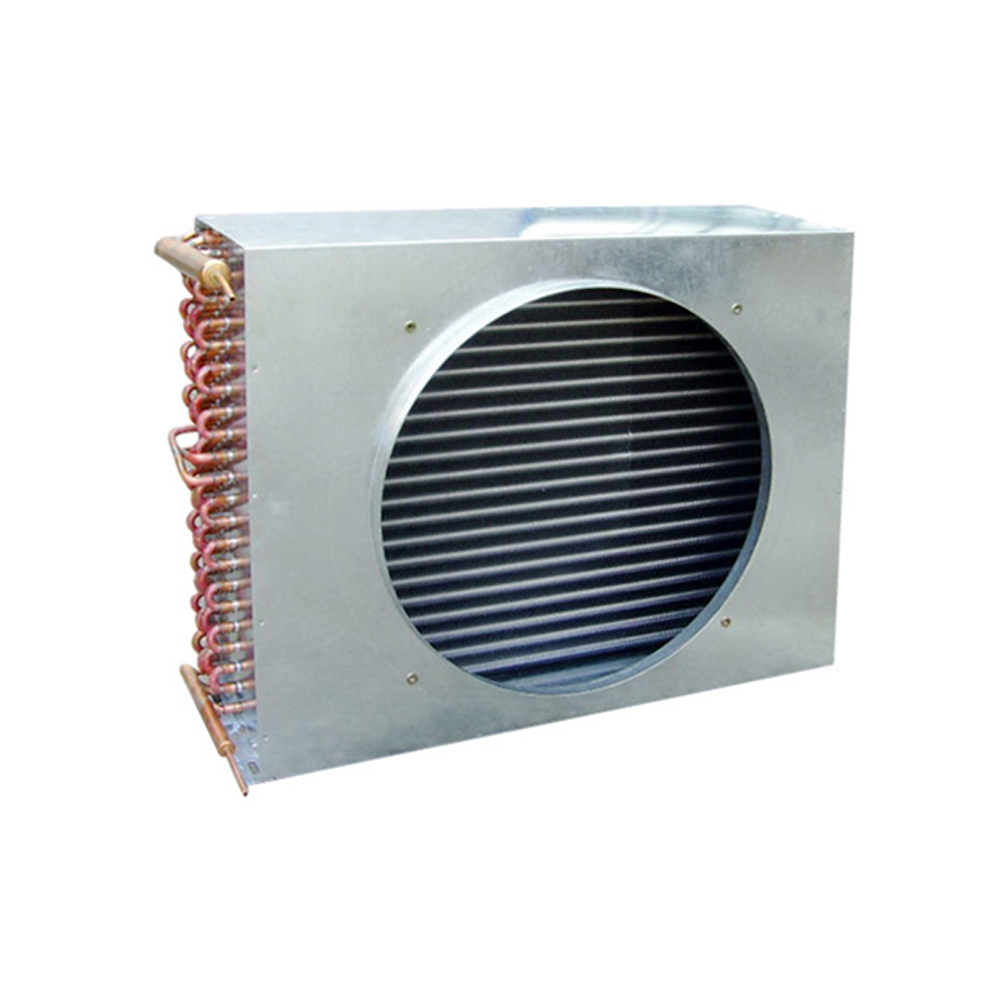
การบำรุงรักษาและการเพิ่มประสิทธิภาพเครื่องแลกเปลี่ยนความร้อนแบบแอร์คูลเลอร์
การบำรุงรักษาอย่างสม่ำเสมอเป็นสิ่งสำคัญสำหรับประสิทธิภาพสูงสุดและอายุการใช้งานที่ยาวนาน ซึ่งรวมถึงการทำความสะอาดเพื่อขจัดสิ่งสกปรกและเศษซากที่สะสม ซึ่งสามารถลดประสิทธิภาพการถ่ายเทความร้อนได้อย่างมาก การตรวจสอบรอยรั่ว การกัดกร่อน และความเสียหายก็ถือเป็นสิ่งสำคัญเช่นกัน การจัดการการไหลของอากาศที่เหมาะสมและการตรวจสอบตามปกติสามารถป้องกันการซ่อมแซมที่มีค่าใช้จ่ายสูงและช่วยให้มั่นใจว่าระบบยังคงทำงานได้อย่างมีประสิทธิภาพ สำหรับบริการบำรุงรักษาและซ่อมแซมโดยผู้เชี่ยวชาญ โปรดพิจารณาติดต่อบริษัทที่เชี่ยวชาญเช่น Shanghai SHENGLIN M&E Technology Co.,Ltd เพื่อขอความช่วยเหลือ
โดยการพิจารณาปัจจัยที่กล่าวถึงข้างต้นอย่างรอบคอบ คุณสามารถเลือกและรักษาประสิทธิภาพและความน่าเชื่อถือได้ เครื่องแลกเปลี่ยนความร้อนอากาศเย็น สำหรับความต้องการเฉพาะของคุณ ช่วยให้มั่นใจถึงประสิทธิภาพการทำความเย็นที่เหมาะสมที่สุด ลดการใช้พลังงาน และยืดอายุการใช้งานของระบบทำความเย็นของคุณ โปรดจำไว้ว่าคำแนะนำจากผู้เชี่ยวชาญมักมีคุณค่าอย่างยิ่งในการตัดสินใจเลือกการใช้งานเฉพาะของคุณให้ดีที่สุด











